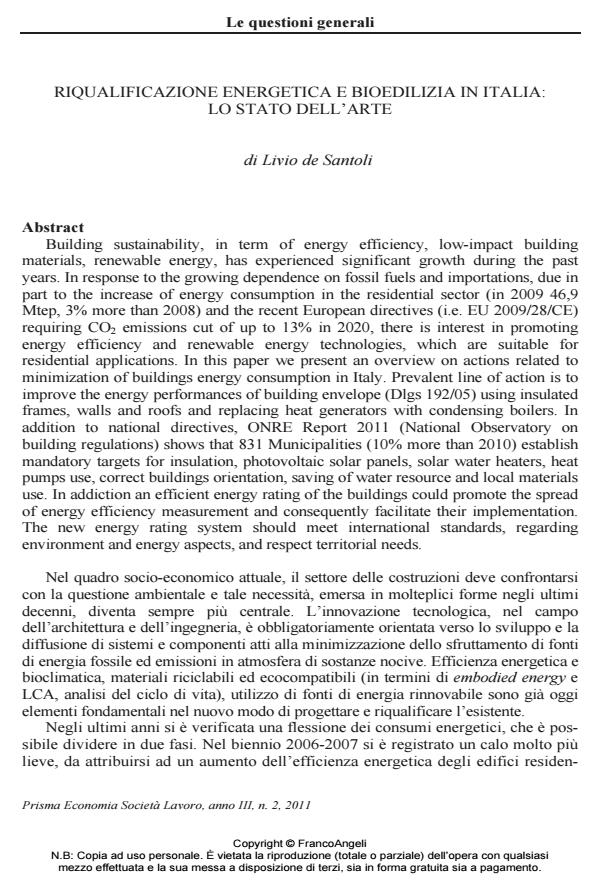Riqualificazione energetica e bioedilizia in Italia: lo stato dell'arte
Titolo Rivista PRISMA Economia - Società - Lavoro
Autori/Curatori Livio de Santoli
Anno di pubblicazione 2012 Fascicolo 2011/2
Lingua Italiano Numero pagine 15 P. 74-88 Dimensione file 1139 KB
DOI 10.3280/PRI2011-002007
Il DOI è il codice a barre della proprietà intellettuale: per saperne di più
clicca qui
Qui sotto puoi vedere in anteprima la prima pagina di questo articolo.
Se questo articolo ti interessa, lo puoi acquistare (e scaricare in formato pdf) seguendo le facili indicazioni per acquistare il download credit. Acquista Download Credits per scaricare questo Articolo in formato PDF

FrancoAngeli è membro della Publishers International Linking Association, Inc (PILA)associazione indipendente e non profit per facilitare (attraverso i servizi tecnologici implementati da CrossRef.org) l’accesso degli studiosi ai contenuti digitali nelle pubblicazioni professionali e scientifiche
Building sustainability, in term of energy efficiency, low-impact building materials, renewable energy, has experienced significant growth during the past years. In response to the growing dependence on fossil fuels and importations, due in part to the increase of energy consumption in the residential sector (in 2009 46,9 Mtep, 3% more than 2008) and the recent European directives (i.e. EU 2009/28/CE) requiring CO2 emissions cut of up to 13% in 2020, there is interest in promoting energy efficiency and renewable energy technologies, which are suitable for residential applications. In this paper we present an overview on actions related to minimization of buildings energy consumption in Italy. Prevalent line of action is to improve the energy performances of building envelope (Dlgs 192/05) using insulated frames, walls and roofs and replacing heat generators with condensing boilers. In addition to national directives, ONRE Report 2011 (National Observatory on building regulations) shows that 831 Municipalities (10% more than 2010) establish mandatory targets for insulation, photovoltaic solar panels, solar water heaters, heat pumps use, correct buildings orientation, saving of water resource and local materials use. In addiction an efficient energy rating of the buildings could promote the spread of energy efficiency measurement and consequently facilitate their implementation. The new energy rating system should meet international standards, regarding environment and energy aspects, and respect territorial needs.;
Livio de Santoli, Riqualificazione energetica e bioedilizia in Italia: lo stato dell'arte in "PRISMA Economia - Società - Lavoro" 2/2011, pp 74-88, DOI: 10.3280/PRI2011-002007